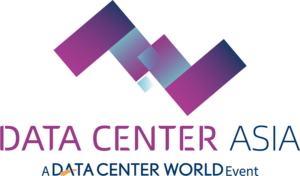A server farm refers to a collection of servers working together, often in a single room or building, while a data center is a complete facility that includes servers, storage, networking, power, cooling, and security infrastructure, providing a controlled environment for running IT workloads reliably.

Join Data Center Asia Malaysia 2025
Data Center Asia Malaysia 2025 is your gateway to Southeast Asia’s dynamic data center market. Connect with operators, cloud providers, and technology innovators, attend practical seminars, and explore solutions in energy efficiency, AI, and 5G to accelerate your digital initiatives.Secure your spot as a visitor or exhibitor!
What is a Data Center?
A data center is a comprehensive, professionally designed facility that houses computing infrastructure with enterprise-grade standards. It’s a holistic approach to IT infrastructure that includes not just servers, but complete environmental controls, security systems, and operational procedures.
Data centers feature redundant power systems, sophisticated cooling infrastructure, fire suppression systems, multiple internet connections, and strict physical security. They’re designed to meet specific uptime requirements (often 99.9% or higher) and follow industry standards for reliability and performance.
What is a Server Farm?
A server farm refers more specifically to a collection of servers working together, often focused on a particular function or service. The term emphasizes the computing equipment itself rather than the facility housing it. Server farms can exist within data centers, but the concept is more about the clustered servers than the infrastructure supporting them.
Historically, “server farm” was used to describe large collections of servers, sometimes in less formal environments than what we now consider enterprise data centers.
Key Differences between Data Center vs Server Farm
Scope and Standards: Data centers encompass the entire facility with enterprise-grade infrastructure standards. Server farms focus primarily on the computing equipment and may not always include the same level of supporting infrastructure.
- Professional Management: Data centers typically operate under strict service level agreements with professional monitoring, maintenance, and security protocols. Server farms might be managed more informally, depending on their purpose and organization.
- Infrastructure Complexity: Data centers include comprehensive power backup systems, advanced cooling, fire suppression, and security measures. Server farms might have these features but they’re not definitively part of the concept.
- Business Focus: Data centers are designed as commercial operations serving multiple clients or critical business functions. Server farms might serve specific internal purposes or single applications.
Modern Usage of Data Center and Server Farm
In today’s context, the distinction has become less clear. Most large-scale server deployments are housed in proper data center facilities due to reliability requirements and operational efficiency. When companies like Google or Facebook build “server farms,” they’re actually constructing full data center facilities with all the supporting infrastructure.
The term “server farm” is sometimes still used colloquially to describe the server clusters within data centers, particularly when referring to specific computing workloads like web hosting, content delivery, or cloud computing services.
* Practical Takeaway: If you’re planning IT infrastructure, focus on data center standards and capabilities rather than just server count. The supporting infrastructure – power, cooling, connectivity, and security – is just as critical as the computing equipment for reliable operations.
